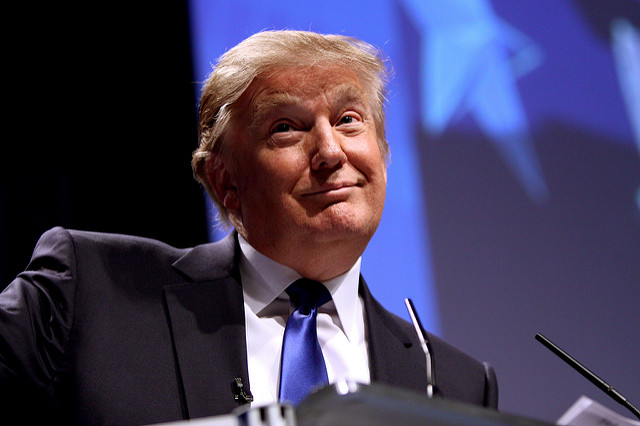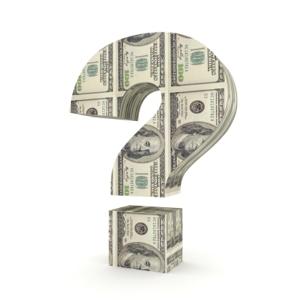The 12 Biggest Myths about Raising Taxes on the Rich
Some politicians are calling for higher taxes on the rich. Naturally, these proposals have unleashed a torrent of opposition – mostly from…the rich. Here are the 12 biggest myths they’re propounding:
Myth 1: A top marginal tax rate applies to all of a rich person’s total income or wealth.
Wrong. It would only apply to dollars in excess of a certain level. The 70 percent income tax rate proposed by Congresswoman Alexandria Ocasio-Cortez would apply only to dollars in excess of 10 million dollars a year. The 2 percent wealth tax proposed by Elizabeth Warren would apply only to wealth in excess of 50 million dollars.
Myth 2 : Raising taxes on the rich is a far-left idea.
Baloney. 70 percent of Americans – including 54 percent of Republicans – support raising taxes on families making more than 10 million dollars a year. And expecting the rich to pay their fair share is a traditional American idea. From 1930 to 1980, the average top marginal income tax rate was 78 percent. From 1951 to 1963 it exceeded 90 percent – again, only on dollars in excess of a very high threshold. Even considering all deductions and tax credits, the very rich paid over half of their top incomes in taxes.
Myth 3: A wealth tax is unconstitutional.
Rubbish. Most locales already impose an annual wealth tax on the value of peoples’ homes – the main source of household wealth for most people. It’s called the property tax. The rich hold most of their wealth in stocks and bonds, so why should these forms of wealth escape taxation? Article I Section 8 of the Constitution gives “Congress [the] power to lay and collect taxes.”
Myth 4: When taxes on the rich are cut, they invest more and everyone benefits, when taxes on the rich are increased, economic growth slows.
Utter baloney. Trickle-down economics is a cruel joke. Donald Trump, George W. Bush, and Ronald Reagan all cut taxes on the rich, and nothing trickled down. There’s no evidence that higher taxes on the rich slows economic growth. To the contrary, when the top marginal tax rate has been high – between 71 to 92 percent – growth has averaged 4 percent a year. But when top rate has been low – between 28 and 39 percent – growth has averaged only 2.1 percent.
More ...
 Can we have a word? I continue to hear from many of you who say you won’t vote for Hillary Clinton because, you claim, (1) she’s no better than Donald Trump, or (2) even if she’s better, she’s still corrupt, and you refuse to vote for the “lesser of two evils,” or (3) you don’t want to reward the Democratic Party for corrupt primaries that gave the nomination to Hillary instead of Bernie Sanders.
Can we have a word? I continue to hear from many of you who say you won’t vote for Hillary Clinton because, you claim, (1) she’s no better than Donald Trump, or (2) even if she’s better, she’s still corrupt, and you refuse to vote for the “lesser of two evils,” or (3) you don’t want to reward the Democratic Party for corrupt primaries that gave the nomination to Hillary instead of Bernie Sanders. I recently got a call from a political analyst in Washington. “Trump is dropping like a stone,” he said, convincingly. “After Election Day, he’s history.”
I recently got a call from a political analyst in Washington. “Trump is dropping like a stone,” he said, convincingly. “After Election Day, he’s history.” We hear a lot about patriotism, especially around the Fourth of July. But in 2016 we’re hearing about two very different types of patriotism. One is an inclusive patriotism that binds us together. The other is an exclusive patriotism that keeps others out.
We hear a lot about patriotism, especially around the Fourth of July. But in 2016 we’re hearing about two very different types of patriotism. One is an inclusive patriotism that binds us together. The other is an exclusive patriotism that keeps others out. Marissa Mayer tells us a lot about why Americans are so angry, and why anti-establishment fury has become the biggest single force in American politics today.
Marissa Mayer tells us a lot about why Americans are so angry, and why anti-establishment fury has become the biggest single force in American politics today.
 Instead of "Yes we can," many Democrats have adopted a new slogan this election year: "We shouldn't even try."
Instead of "Yes we can," many Democrats have adopted a new slogan this election year: "We shouldn't even try."



